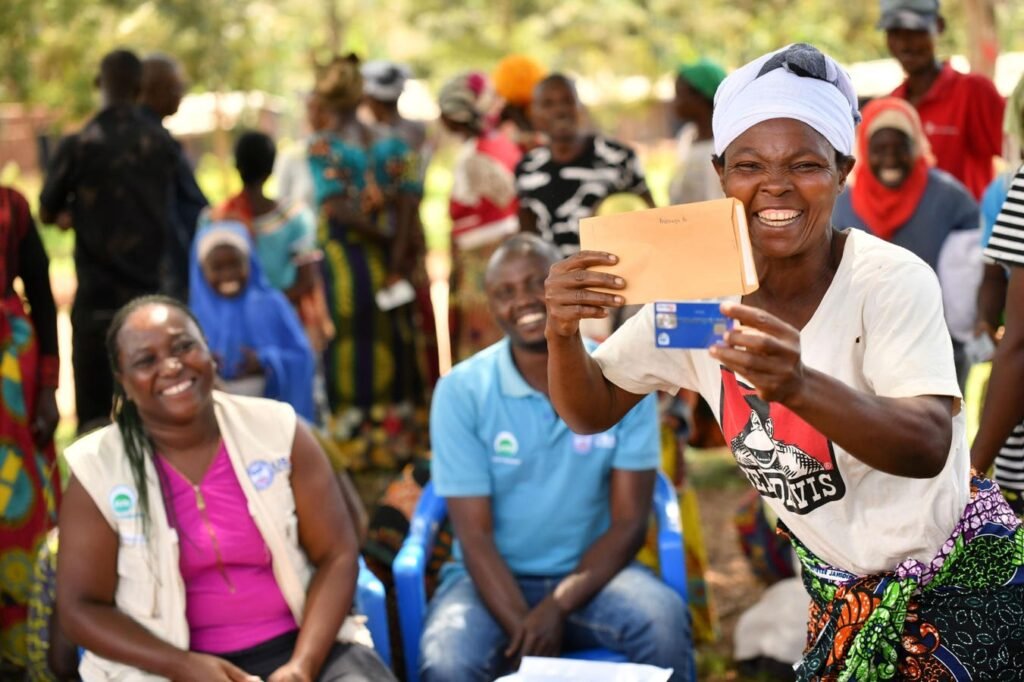When most Americans think of mobile money, they think of Venmo, Cash App, or PayPal. But the real pioneers of this space aren’t in Silicon Valley, they’re in Nairobi, Lagos, and Johannesburg.
In 2007, Kenya introduced M-PESA, a groundbreaking mobile money service that revolutionized how people store, send, and use money without access to traditional banking. What started as a local solution to an infrastructure problem has since become one of Africa’s most valuable exports: a blueprint for mobile finance innovation across the world.
A woman in Uganda attains financial agency
AVSI Foundation
Today, mobile money is one of the continent’s greatest contributions to the global financial system. And while much of the world is just catching up, Africa continues to lead—with lessons we’d be wise to learn.
Innovation Born from Necessity
Africa’s fintech boom isn’t just a story of flashy apps or hype-driven crypto ventures. It’s rooted in necessity.
Traditional banking systems are inaccessible to millions across the continent. In their place, mobile money and decentralized finance (DeFi) have emerged as essential tools for survival, savings, and resilience. According to a 2024 study by Ecofin Agency, 73% of Nigerians and 68% of South Africans have owned or transacted in cryptocurrency. This staggering figure is not driven by speculation, but by the need for more inclusive financial alternatives.
When formal systems fall short, people innovate. Africa is proving that ingenuity and impact can thrive even in the absence of infrastructure.
Economic inclusion programs incorporate financial apps for asset transfers
AVSI Foundation
Africa Isn’t Catching Up, It’s Leading
In April, I attended the Africa Fintech Summit in Washington, D.C.: a gathering of some of the most dynamic and visionary minds in global finance. If there’s one thing that was immediately clear, it was that African fintech is no longer trying to catch up, it’s defining the future.
In countries like Nigeria, Senegal, South Africa, and Kenya, fintech isn’t about convenience. Instead, it’s about creating inclusive financial systems that serve the continent’s young, entrepreneurial, and often underbanked population.
Throughout the summit, I witnessed conversations about inclusive financial services that tackle inequality at its roots, and strategic partnerships being made to strengthen global investment corridors. Every person in the room had a laser focus on how fintech can meet the needs of a rising generation that is hungry for opportunity.
What I learned is that these innovators aren’t just coding; they’re solving complex, real-world problems at scale.
But There’s a Missing Piece: Women
Despite this promising future, there’s a blind spot in African fintech—and global fintech, for that matter.
Most fintech founders and developers are men. And while gender diversity in leadership is crucial, what’s often overlooked is the role of women as consumers of financial technology. Women manage household budgets, lead community savings groups, and support extended families. Yet fintech products are rarely designed with women’s financial behaviors, risk tolerance, or digital access in mind.
Economic inclusion programs in Uganda help women in rural areas access digital finances
AVSI Foundation
Without intentional, gender-inclusive design, we risk building tools that multiply the very inequities we’re trying to solve.
We need a fintech revolution that reflects how women save, spend, and invest, and accounts for the systemic barriers they face in accessing and using digital tools. This isn’t just good design, it’s smart economics.
Where Are the NGOs?
One thing that struck me at the summit was the absence of NGOs in the room. If NGOs want to stay relevant in the fight for financial inclusion, we must stop viewing fintech as someone else’s domain. Innovation is happening with or without us. Our role is to ensure that this innovation works for the people we serve, not against them.
NGOs have a front-row seat to the challenges and the creativity of low-income communities. We bring hard-earned insights about what real inclusion looks like. But unless we show up, partner, and participate, those insights won’t make it into the next wave of financial tools, and many people will be left behind.
A Call to Action
African fintech is moving fast. If we’re not careful, it will race ahead without addressing the needs of the poorest and most excluded, particularly women.
The development sector can’t afford to be passive. We must build intentional partnerships with fintech leaders, advocate for inclusive product design, and push for systems that create economic agency and dignity.
When fintech is designed to serve everyone, it doesn’t just transform individual lives; it reshapes the future of finance itself.
This is a content marketing post from a Forbes EQ participant. Forbes brand contributors’ opinions are their own.


